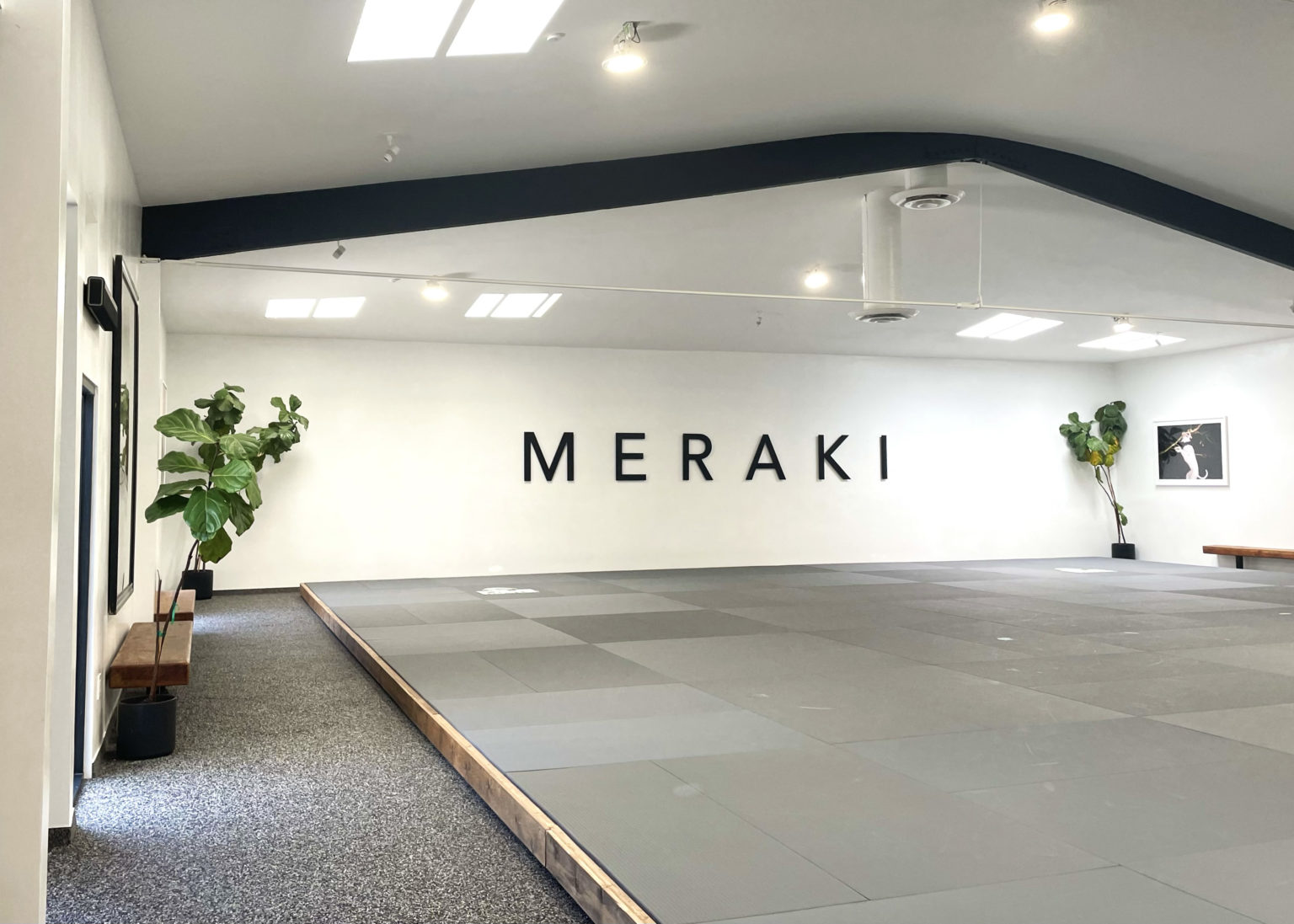
Three months ago, after years of not understanding what the hype was about, I turned up at my first Brazilian jiu-jitsu class. I quickly became hooked. I’m not alone in my experience — people who train jiu-jitsu often become fanatics about it. Many end up training for years, decades even, — a feat that’s nearly unheard of in our fast-paced, instant results society.
So what is it about jiu-jitsu that makes it hold such appeal for so many people? There are several things I’ve observed so far.
First, a jiu-jitsu mat is one of the only places many people go to focus entirely on their growth. People who train the martial art want to become better — better athletes, better teammates, better human beings. Jiu-jitsu brings out our natural inclination toward learning and mastery.
Then there’s the community aspect, something that’s lacking in our individualist society. So many of us work from home now and are behind screens all day. The mat brings people together in ways we are severely lacking.
And finally, there are the life lessons.
Each time I step onto the mat, I learn something new. Most of these lessons have nothing to do with the more technical skills of jiu-jitsu, like how to get past my opponent’s guard or execute a new submission. Instead, they have to do with how we live our lives.
How can we work toward our potential as human beings and be the best version of ourselves in the world?
Jiu-jitsu is one way to get there. It’s not the only way — you can learn many of these same lessons from running, playing music, or pursuing art. Yet because of the unique combination of physical exertion, self-mastery, and community, jiu-jitsu does have a way of bringing the best out in ourselves.
Even if jiu-jitsu isn’t your sport, there are many things you can learn from it. Here are five lessons from jiu-jitsu that apply our lives:
Repetition is the Only Way Through
Jiu-jitsu has a lot in common with chess. It’s slower and more calculating art than striking martial arts, and there are hundreds — if not thousands — of possible techniques and submissions.
However, even black belts don’t know all of these different techniques. The best will focus on getting good at a few to develop their own style. They’ll work first to build a solid foundation and slowly add new skills to their repertoire over time.
Anytime we learn something new, we start by having to think hard about what we’re doing. It isn’t until we repeat it over and over that it becomes automatic.
I’ve quickly come to realize this in my jiu-jitsu training. There’s a lot I don’t know, but rather than trying to learn every possible technique, I’m focused on getting good at a few key ones and then drilling them repeatedly until they are baked into my subconscious.
We can take this same quality over quantity approach to all areas of our lives.
Rely on Leverage and Efficiency
Unlike striking martial arts that make it nearly impossible to defeat an opponent larger and stronger, jiu-jitsu gives underdogs more of a chance. How can we lift a person twice as heavy as us? How can we choke someone who is three times as strong?
The answer to these questions is always leverage. By relying on timing and efficiency, we can multiply our perceived strengths while minimizing those of our opponent.
We can apply the concept of leverage to our lives in several key ways:
- By working smarter, not harder, and focusing on skill, technique, and efficiency over brute strength.
- By focusing our energy on high leverage activities — I.e., those activities that make the most impact on our lives
- By not forcing things in life. If something isn’t working, find another way.
Perfect Practice Makes Perfect
“People like to say that practice makes perfect. But it’s not true. Perfect practice makes perfect,” my instructor tells us after a particularly sweaty training session one night.
Many people think that time alone will result in progress. But spending time practicing badly won’t help you reach mastery level. To improve, we have to do what the psychologist Anders Ericsson called deliberate practice — practice that’s “effortful in nature, with the main goal of personal improvement of performance rather than enjoyment.”
In other words, we have to intentionally practice perfectly.
In jiu-jitsu, this means drilling the same move repeatedly with intention. It means making mistakes, pinpointing what we did wrong, then correcting them. We can apply this same perfect practice technique to any area of our lives.
Mistakes Are How We Learn
The other day, I was rolling,– the jiu-jitsu term for sparring – , and got caught in a kimura, a position that results in a painful double joint armlock and is difficult to escape. I tapped, the universal signal for submission in jiu-jitsu.
“Good,” my training partner told me. “Now you’ll know to look out for kimuras.”
He was right; before that point, I had protected my arms but mostly to prevent armbars, another submission that results in pain and, ultimately, the breaking of your arm if you don’t tap soon enough. Now, after making this mistake, I know better.
When we make mistakes, we open the door to neuroplasticity, our brain’s ability to change and adapt as a result of experience. As kids, and up until the age of about twenty-five, our brains are naturally plastic — we learn easily without always having to try very hard.
When we reach our mid-twenties, most of our brain’s patterns are solidified, but that doesn’t mean we can’t continue learning well into old age. We just have to try harder to do so.
According to Stanford neuroscientist Andrew Huberman, continuing to drill into a process to the point of frustration — then staying with that process for a little bit longer — is the most important thing for adult learning.
This is as true for learning jiu-jitsu as it is to learn any life skill.
Failures Are Learning Opportunities
“I know some of you were frustrated today,” my instructor told us one day after class. We went hard, most of us rolling for over thirty minutes straight after an hour of drills.
“But remember this. There is no losing in jiu-jitsu. You either win — or you learn.”
This is the lesson I’ve taken most to heart as I’ve embarked on my jiu-jitsu journey. I know I’ll fail a lot before I succeed. I know I won’t win every match once I start competing. I know that I’ll encounter frustration and plateaus along the way.
I’ve had enough success in other areas of my life to know that failure is a part of the process. I failed over and over before I was able to do my first pull-up, fell hundreds of times before I could hold a handstand, and got punched in the face again and again before I learned how to slip a punch when boxing. In each of these pursuits, I didn’t let my failures deter me. I kept trying and adjusting my approach until, finally, I started succeeding more than failing.
Failure before success is a given. This is true whether your goal is to learn jiu-jitsu, pick up a new instrument, or pursue a career-related dream.
Fail; adjust, and eventually, succeed. As long as you consider failures to be learning opportunities, you can learn and grow from them.
As the lifelong learner and author of Mastery, George Leonard wrote, “To learn is to change. Our destiny is to learn and keep learning for as long as we live.”


